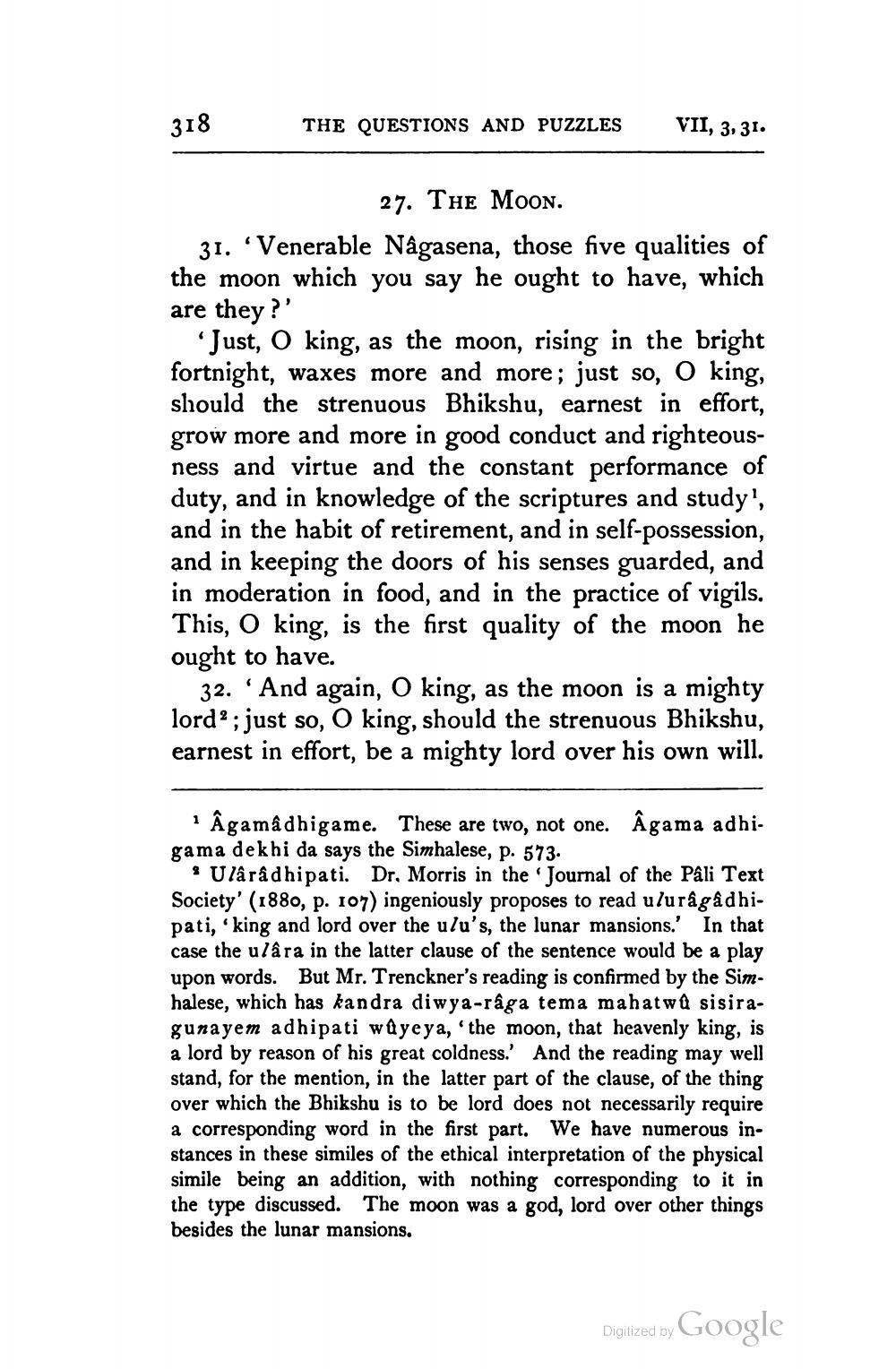________________
318
THE QUESTIONS AND PUZZLES
VII, 3, 31.
27. The Moon. 31. 'Venerable Nâgasena, those five qualities of the moon which you say he ought to have, which are they?'
Just, О king, as the moon, rising in the bright fortnight, waxes more and more; just so, O king, should the strenuous Bhikshu, earnest in effort, grow more and more in good conduct and righteousness and virtue and the constant performance of duty, and in knowledge of the scriptures and study', and in the habit of retirement, and in self-possession, and in keeping the doors of his senses guarded, and in moderation in food, and in the practice of vigils. This, O king, is the first quality of the moon he ought to have.
32. 'And again, O king, as the moon is a mighty lord?; just so, O king, should the strenuous Bhikshu, earnest in effort, be a mighty lord over his own will.
* âgamâdhigame. These are two, not one. Âgama adhigama dekhi da says the Simhalese, p. 573.
U lârâdhipati. Dr, Morris in the Journal of the Pali Text Society' (1880, p. 107) ingeniously proposes to read ulurägâdhipati, 'king and lord over the ulu's, the lunar mansions. In that case the ulära in the latter clause of the sentence would be a play upon words. But Mr. Trenckner's reading is confirmed by the Simhalese, which has kandra diwya-raga tema mahatwu sisiragunayem adhipati wûyeya, 'the moon, that heavenly king, is a lord by reason of his great coldness.' And the reading may well stand, for the mention, in the latter part of the clause, of the thing over which the Bhikshu is to be lord does not necessarily require a corresponding word in the first part. We have numerous instances in these similes of the ethical interpretation of the physical simile being an addition, with nothing corresponding to it in the type discussed. The moon was a god, lord over other things besides the lunar mansions.
Digitized by Google




